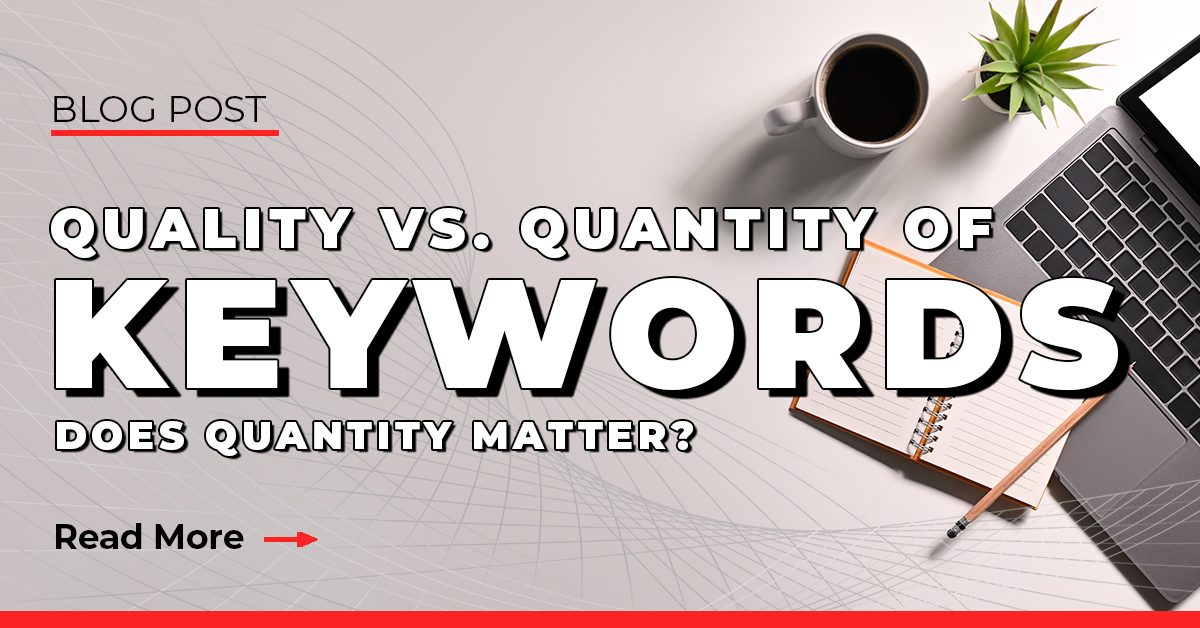![]() By Regina Marsden-Crupe
Nov 25, 2022 6:22:00 PM
By Regina Marsden-Crupe
Nov 25, 2022 6:22:00 PM

Your website is the first impression potential customers have about your business. It's one of the most important tools you need to generate high-quality leads and ultimately sales.
Your website is your 24-hour digital sales and marketing assistant; it's accessible to everyone, anytime, anywhere.
With more than 80% of consumer research now done online, your website is often where people start their search about a service or product they need.
Since prospective customers start their purchase journey on your website, it must function effectively, quickly and cleanly. In fact, outdated websites can have a negative impact and be harmful to your business, both from a user experience (bounce rate) and, above all, from search engine rankings. Rebuilding your website ensures you stay up to date with changes in search engine algorithms that affect your website's ranking.
4 Critical Reasons Why You Need to Rebuild Your Website
1. How to identify and fix forgotten web pages, functionality issues, and extra code problems
A slow website load time is a serious problem. Up to 53% of visits are abandoned if a website takes longer than 3 seconds to load. And with a 0.1s improvement in site speed, conversions improve 10% or more. Your website may contain outdated features and code, making your navigation messy and difficult to use. Your site may have been built by a web designer or programmer who is no longer available for updates, maintenance or functionality.
Or perhaps you used a website builder like Wix or Squarespace. It may have seemed like an easy-to-use, quick option, but most of these sites are designed for aesthetics, not functionality or speed. A leaner and more efficient website increases your search engine rankings by Google and other search engines. Search engines reward a lean, performance-oriented website with greater visibility in search rankings.
Do you know how many pages your website contains? Or how to add pages and content? Even if you have an idea, you may not have control over these factors. This is a big problem. You need to make or request changes on the fly, and have access to data that tells you how updates affect your website's performance. If you don’t have access to this data, you’re flying blind. This makes it impossible to accurately assess how well your website is doing.
2. How to address an outdated website design
Research shows that it takes about 50 milliseconds (0.05 seconds) for users to form an opinion about your website - and whether they should stay or bounce! Make sure that visitor reactions are positive, and your website looks as sleek, modern and up-to-date as possible.
Besides slow loading, other reasons visitors have left websites include bad navigation (61.5%) and outdated design (38.5%) as indicated by research from GoodFirms.
The average lifespan of a website is 2 years and 7 months. Websites that haven't been updated for more than two years can cause problems with search engine results, lead generation, and conversions. The main objective of your site is to motivate searchers to take action and become customers.
3. How to identify and update obsolete content or business
Information You can’t expect your website to rank well in search if it has stale content. Over time, you may have gotten used to the content currently on your website, and believe the information is best for your traffic. You may even be posting content that isn't interesting or valuable to your customers or prospects. If someone lands on a page and isn’t interested in what they see, they’ll leave your website and never come back.
Search engines look for relevant content and visitor engagement when deciding to display your pages in search results. It is no longer enough for your site to look good. It's about your website demonstrating authority through content, being persuasive, and guiding your visitors to take the next step. This means not only creating content that answers the questions people are looking for, but also presenting it on clean, organized and engaging pages. If you have no idea what type of content is relevant and valuable to your audience, you miss out on attracting high-quality potential sales and losing business.
Newer websites are built on a content management system (CMS), such as HLM's Footprint™ platform. A CMS can build fast, flexible, mobile-friendly websites that are easy to update with new and relevant content, blogs, videos, specials and social media feeds.
There's never a better time to "clean the house" than when building a website. Determine which pages or information are no longer necessary or relevant. Identify which content should be added, and most importantly - with your prospects and customers in mind. Engaging your website visitors is a major part of gaining trust and credibility with search engines. This ultimately leads to your website and pages appearing at the top of the search results, creating more leads.
4. How to ensure your website remains in sync with evolving search ranking algorithms
Up to 93% of customers expect brands to have a responsive, seamless experience across all devices. Because mobile search is so popular, search engines have built their experiences around it. Google has made a significant algorithm change that has given more importance to how a website works on mobile devices before desktops and laptops. Mobile performance has become such a fundamental aspect of Google's search ranking, that many sites still need to be completely rebuilt.
Google is constantly updating its algorithm to provide its users with the most accurate, relevant, and secure web pages. In 2020, Google made about 4,500 algorithm changes that determine where and how a website appears in search. That's an average of 12 changes a day!
Knowing which algorithm updates have taken place will help ensure your website follows SEO best practices to improve your rankings, and also understand the reasons for performance or traffic changes.
In this short video, HLM digital marketing expert Jake Evans identifies the four critical reasons why you should rebuild your website.
By watching this video, you'll learn:
- How to identify and fix forgotten web pages, functionality issues, and extra code problems
- How to address an outdated website design
- How to identify and update obsolete content or business information
- How to ensure your website remains in sync with evolving search ranking algorithms
Ensure Your Website Stays Competitive
Your business must have a carefully constructed, quick, and versatile website that captures and converts visitors into qualified prospects in order to succeed. Your website is where people can get information, find solutions to their problems, and become your customers. People don’t click on "buy now" buttons on your site. They click "let's chat" or "get a free estimate."
If your website is two years old and out of date, it will bring in fewer visitors, fewer leads, and less revenue.
Your website is crucial to your business’s success. So don’t put it off any longer; it’s time to rebuild your website.
Ready for better results from your website? Don’t go it alone!
Book your complimentary digital marketing consultation with Jake here:
Get Started →
Author: Regina Marsden-Crupe
Contact Us NowRecent Posts
When you're done with this post, check out our other content below for more Digital Marketing expertise
Contact Us Today
Complete the form below and receive a call within minutes.
Need faster results? Call us now at (888) 717-4249





